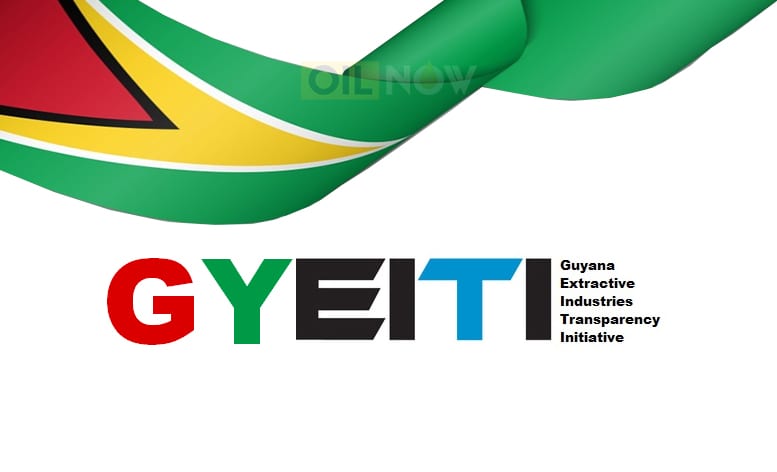Guyana has achieved a “fairly low overall score” of 52 points for implementing the 2019 Extractive Industries Transparency Initiative (EITI) Standard. In its decision paper, the EITI Board explained that Guyana’s score reflects an average of three areas assessed: Stakeholder Engagement, Transparency, and Outcomes and Impact.
On Stakeholder engagement, the Board said Guyana scored 60 points. While civil society has been a driving force in implementation, the Board expressed concern over weaknesses in government and industry engagement in the EITI process, including in disclosures of required data. It also said weaknesses in the multi-stakeholder group (MSG) oversight of EITI implementation have led to challenges both in reporting and in ensuring that the EITI provides a meaningful forum for multi-stakeholder consensus-building.
Guyana launches new EITI multi-stakeholder group
The Board recommended that ensuring a balance of views in developing objectives for EITI implementation could contribute to strengthening government and industry engagement. The Board also urged the government to implement legal provisions for public participation in policymaking for extractive sector governance, including in the implementation of legal provisions related to free, prior and informed consent in the extractive licensing process, with a view to ensuring full adherence to national policies and laws. It said too that the Guyana EITI should closely monitor implementation of these legal provisions.
Guyana on brink of becoming one of world’s largest oil holders; careful management is key, says EITI
On the transparency component, the EITI Board said Guyana has made commendable efforts to use EITI implementation to ensure disclosures on areas of public interest, including contract transparency, commodity sales and environmental aspects of the extractive industries, reflecting priorities of civil society in particular. It also observed that Guyana’s EITI reporting has shed some light on the government’s revenues from the extractive industries for the first time. Along with those positive gains, EITI said weaknesses in company reporting and taxpayer confidentiality constraints mean that only a minority of the government’s revenues have been disclosed through EITI to date to the levels of disaggregation and reliability required under the EITI Standard. In light of this, Guyana scored 53.5 points.
The Board therefore urged Guyana to ensure complete and reliable revenue disclosures as a basis to support the government’s public finance management reforms.
As for the Outcomes and Impact component, Guyana achieved 42 points. The Board explained that this score “reflects the ad hoc approach to outreach and dissemination, weaknesses in follow-up on EITI recommendations to deliver reforms and insufficient attention to the annual review of outcomes and impact, with a view to informing the annual EITI work plan.”
While the Board commended Guyana for its innovative efforts to undertake outreach during the pandemic, it said ensuring that a broad range of government, industry and civil society constituencies are consulted in developing the annual work plan would help ensure that the EITI is supporting national reform objectives.
The Board has determined that Guyana will have until the next Validation process commencing on April 1, 2024, to carry out 32 corrective actions.
Failure to demonstrate progress in this regard may result in temporary suspension in accordance with Article 6 of the EITI Standard, the EITI Board said. In accordance with the EITI Standard, Guyana’s Multi-Stakeholder Group may request an extension of this timeframe or request that Validation commences earlier than scheduled.
Guyana launches new EITI multi-stakeholder group | OilNOW
Guyana was accepted as an EITI implementing country on 24 October 2017.
The oil-producing state with four sanctioned projects in the Stabroek Block, along with over 50 other countries have committed to strengthening transparency and accountability of their extractive sector management by implementing the 2019 EITI Standard.
Countries are assessed on their progress in meeting the requirements of the EITI Standard through Validation, the EITI’s quality assurance mechanism.



